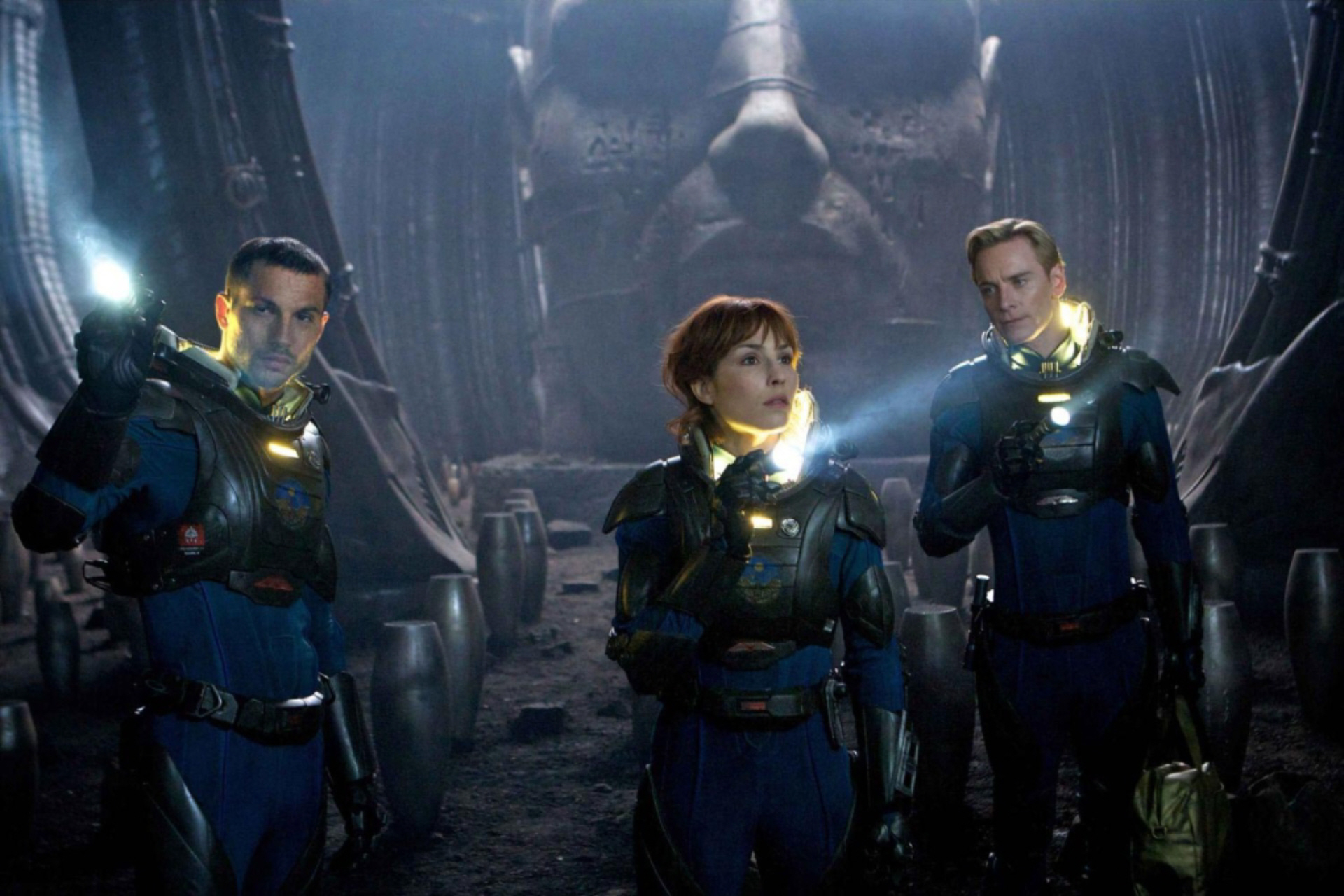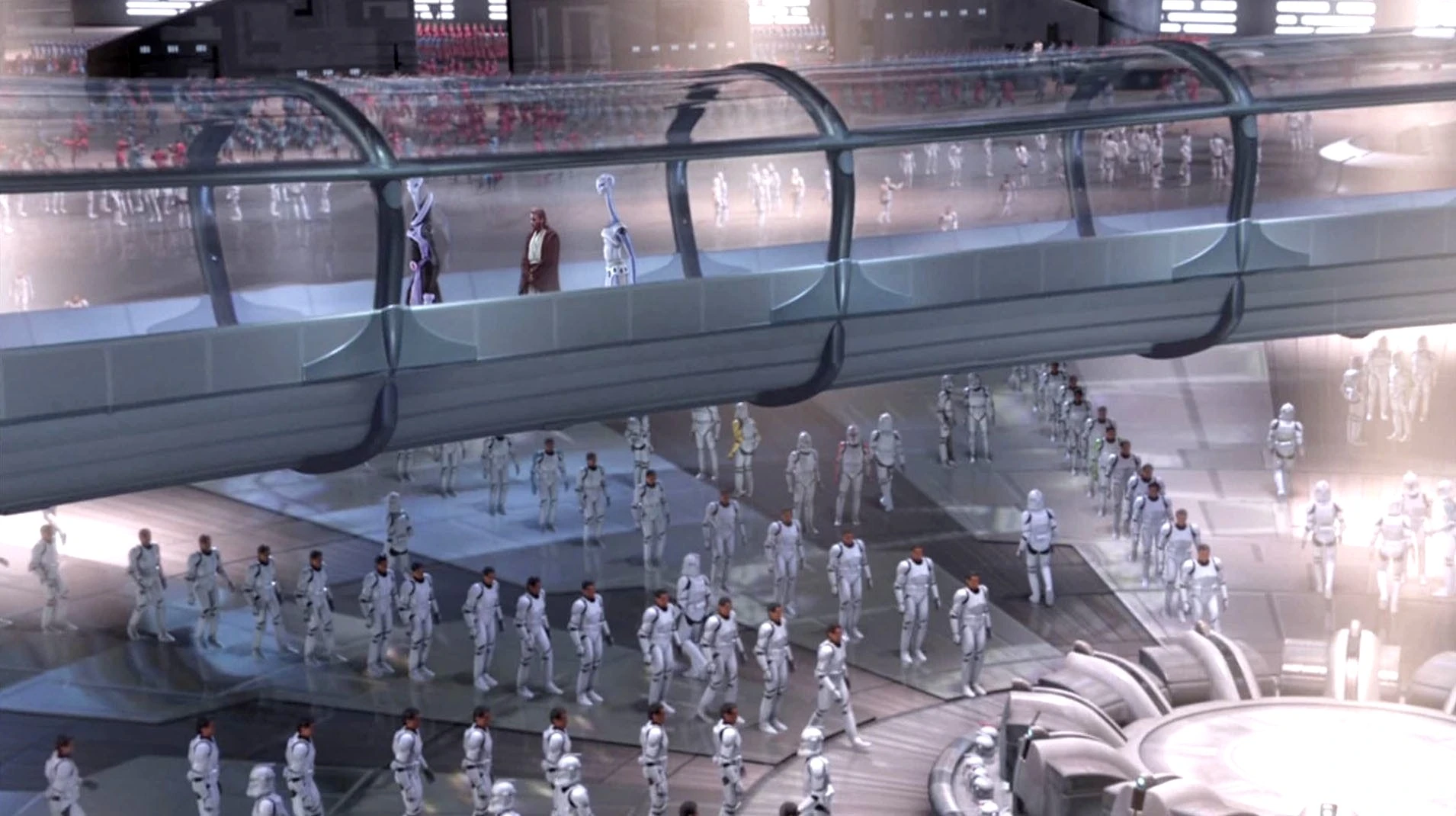- Alien - being a story of company grunts who come upon a horrific discovery and are left to die for the sake of inhuman ambition.
- The Prequel Trilogy - being a hyper-real spectacle that mocks our attempt to make sense of a horrific universe.
But anyone I recommend this movie to always has one complaint before any engagement with the film:
"Blue, the scientists are so stupid!" Which is true, and that's weird. Here they are, the elite chosen for a first contact mission, by the richest man in the solar system, and they fall into dozens of mistakes that end up getting most of the crew killed. The cartographer gets lost, the biologist gets attacked by a snake, and no one can translate anything without the robot doing it first.
So here's where we get into the discussion about art relaying subjective truth.
We've all had those workplaces where everyone else was a complete idiot. You come in early just to get any work done before people start bothering you. But once everyone does arrive, they're disturbing you with their chit chat and their hall talk. They put errors into the spreadsheets you rely on, and that's when they even use the tools you give them properly. The systems that are set up incentivize short sighted behavior, and every attempt to make them more efficient is given a funny look. Your boss is venal, your intern is incompetent, and your peers must be sabotaging you with their procrastination.
I don't know the details in every case, but we've all been there. Or if we've been very lucky, we've seen sitcoms about this. Office Space certainly tries to get this feeling across.
Except, in our detached enlightened moments of reflection, we realize this is not an accurate summary of the situation. Our workplace does not specifically hire for dysfunctional idiots. From our perspective we can't see the reasons behind their actions, and from their perspective we look like an unhelpful office shut in.
Just because they do not capture the entire objective situation, does not mean that such stories are not helpful. They help us understand why a person sees the world in a certain way, why they do the things they do, and what do the facts look like from a different angle?
Prometheus is told from the perspective of David the android. He is the office savant who can not tolerate all the morons around him - but is bound to meekly serve them anyway. Post-prologue, we start the movie with David having a nice productive life - exercising, watching some movies, getting work done - and then ugh, everyone wakes up, throwing up and eating and being cranky and confused. (It's great how Alien movies spend time on waking up from cryostasis and the communal first meal.)
What do you do after you've gotten tired of this? Well, one option is that you begin passive aggressively sabotaging your coworkers, especially the most obnoxious ones. You follow their orders to literally, or you make decisions without asking them, or you work on your own weird personal project and hope no one bothers you. All with a sarcastic smile.
Look at that David up there in the middle picture, while Shaw and Holloway are lost in their reverie, he's just whispering over their shoulder, knowing they'll ignore him. David's performance in this entire movie is just fantastic like this.
(Much as you need to understand that in the Prequels everything - from the bumbling Jedi council, to the racial cariacature aliens, to sharing knowledge of his cynical plans - is from the perspective of Palpatine.)
Sometimes after enough of this passive aggressive sabotaging, and various crises, the challenges are overcome and that new intern turns out to be surprisingly smart. Not everyone is as useless as you cynically thought, maybe you can even pick up a clever teammate along the way.
That's what David is feeling when he turns to Shaw at the end and says "I didn't know you had it in you."



Hm...If so, I still think it's a failure on the director's part to not convey this in a way that more people understood. I can see what you're saying but, even as somebody who likes the film more than most people do, I still never came across this explanation as the way to argue to argue that it's a better film that most people think.
ReplyDeleteIf everything was so easy to interpret, there'd be no fun at all. Hello from the future.
Delete